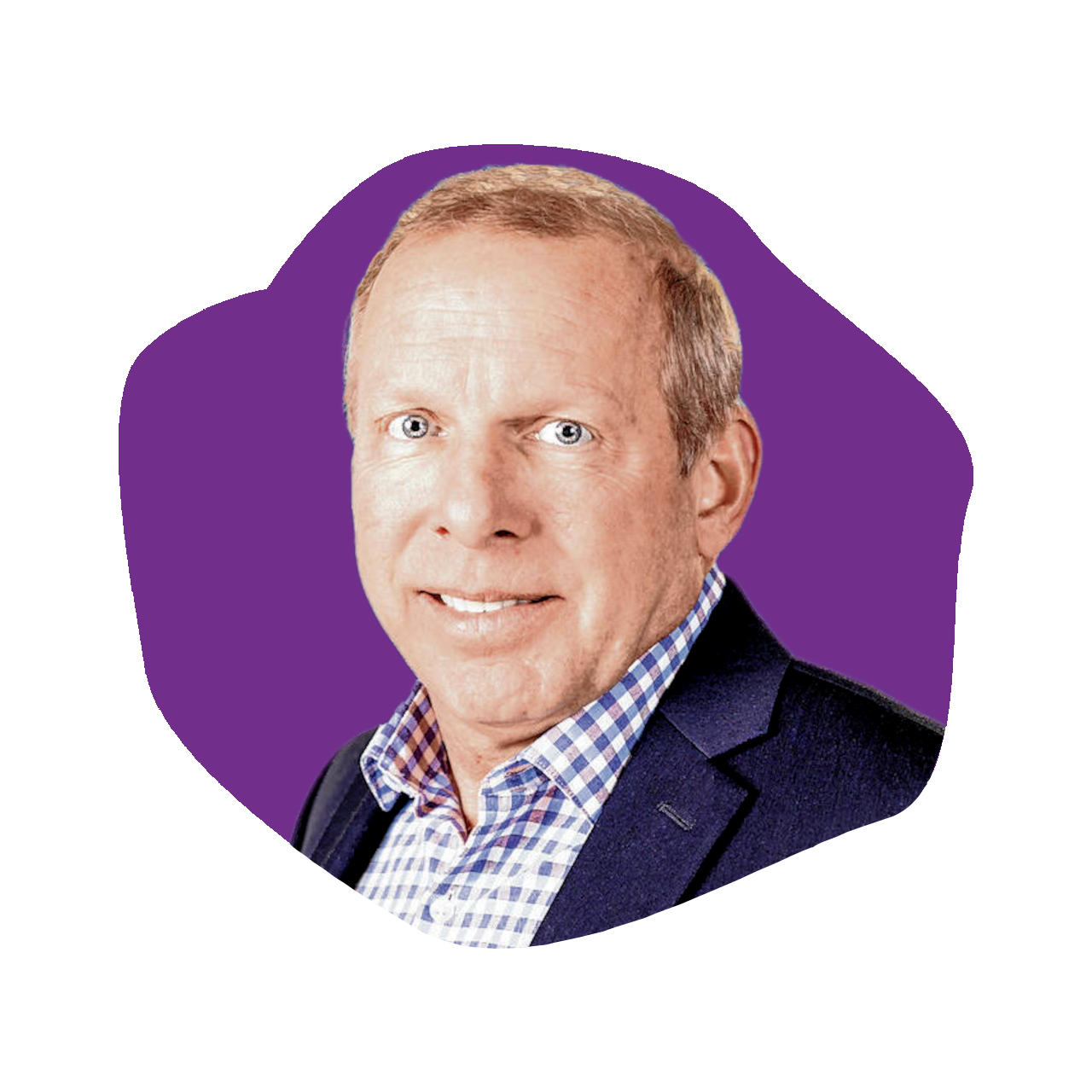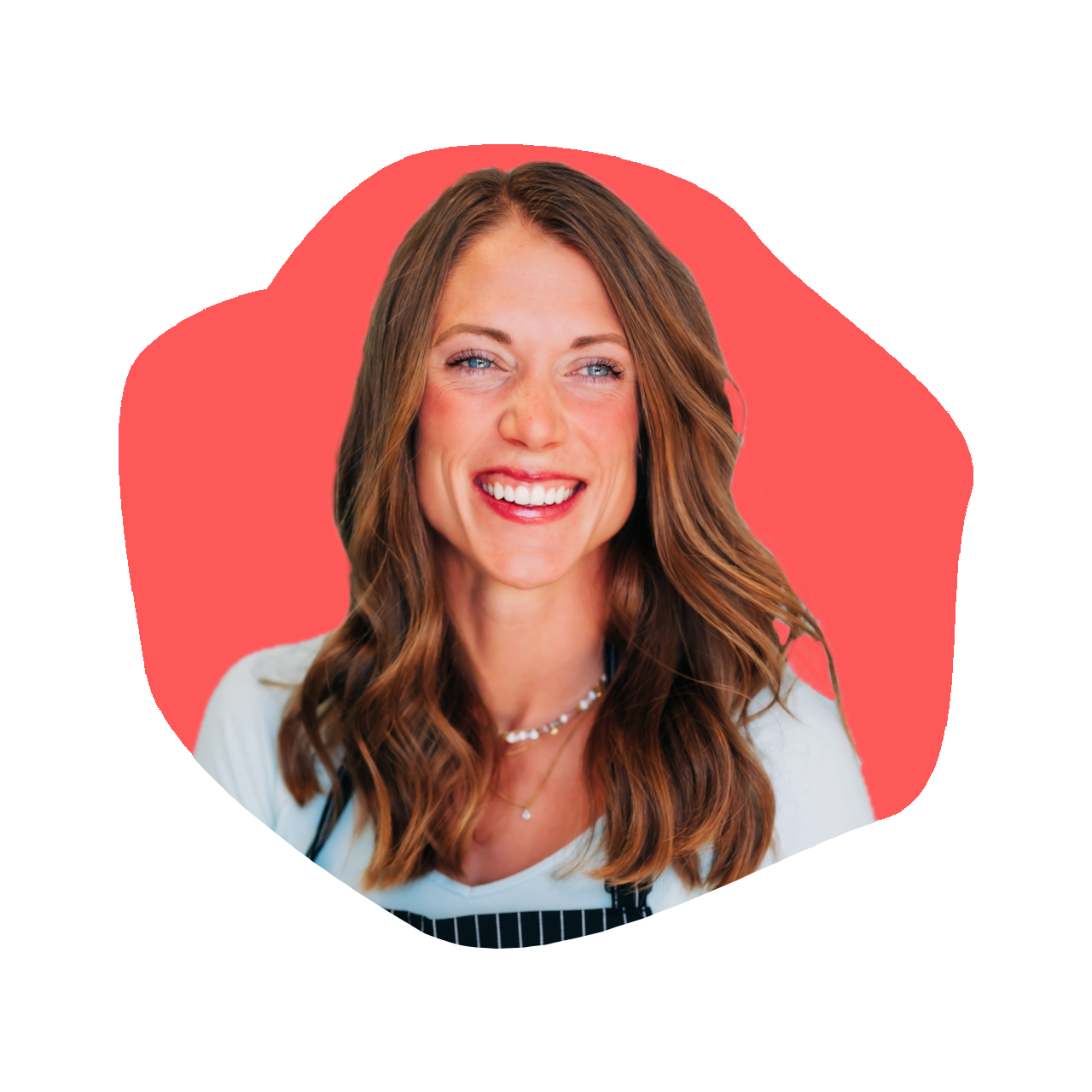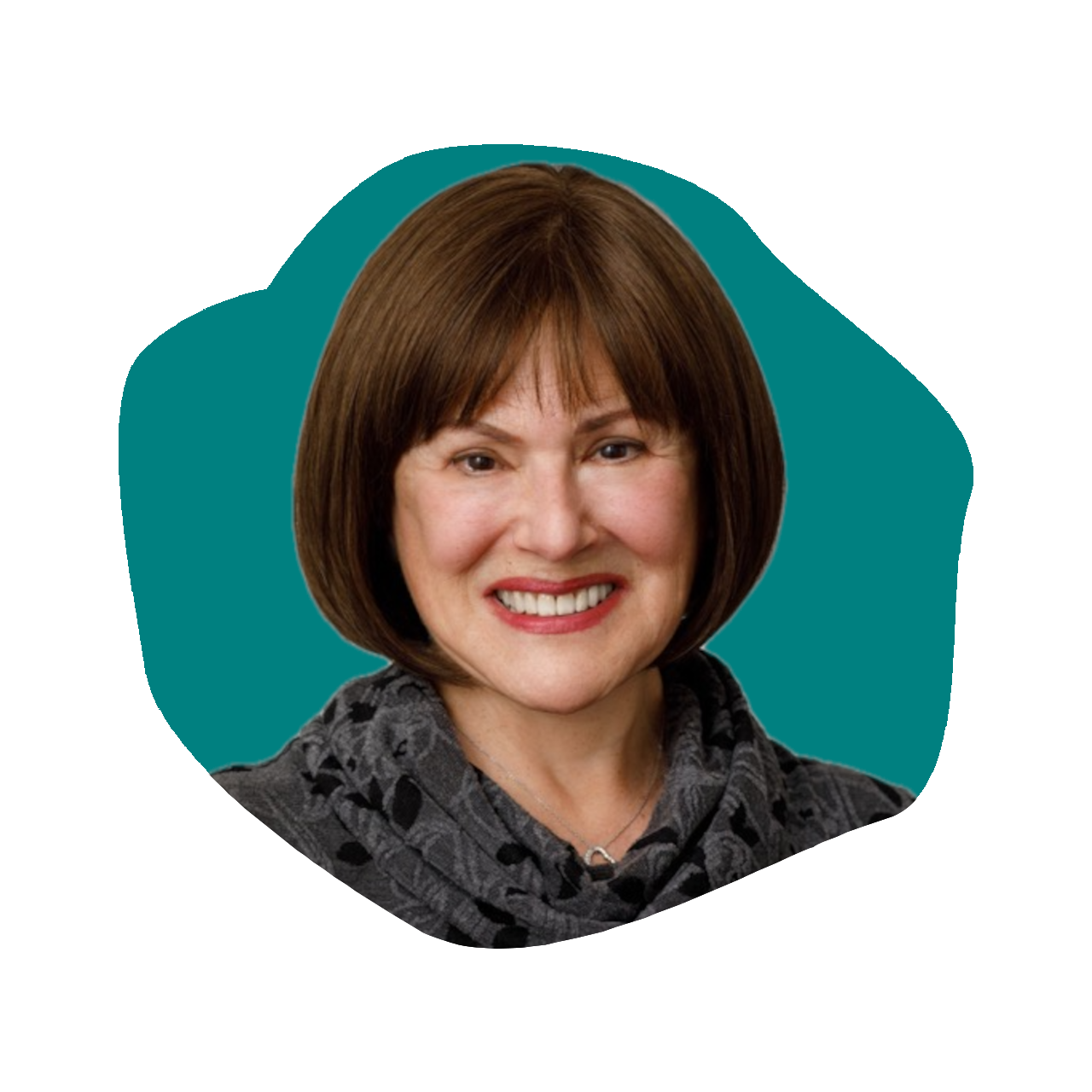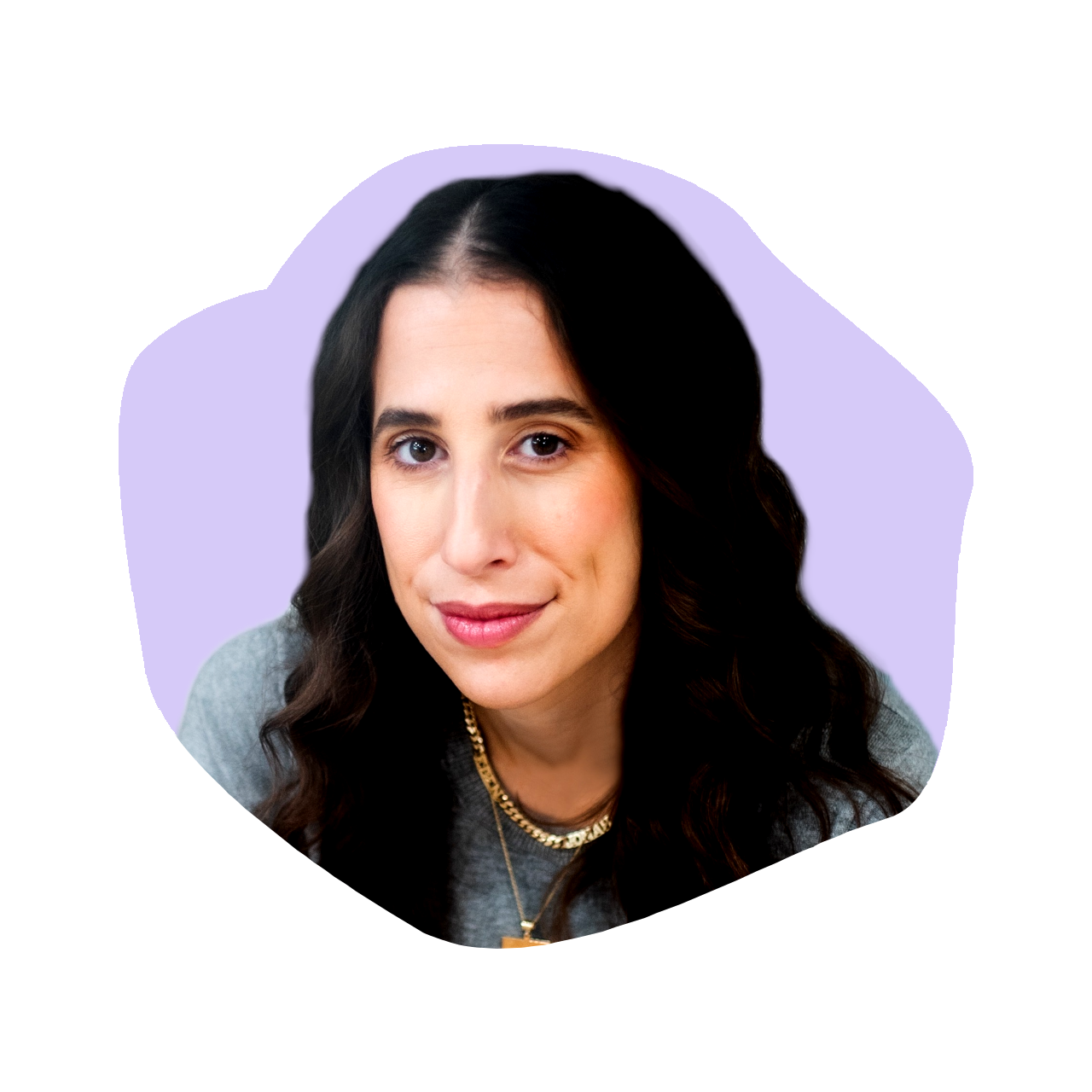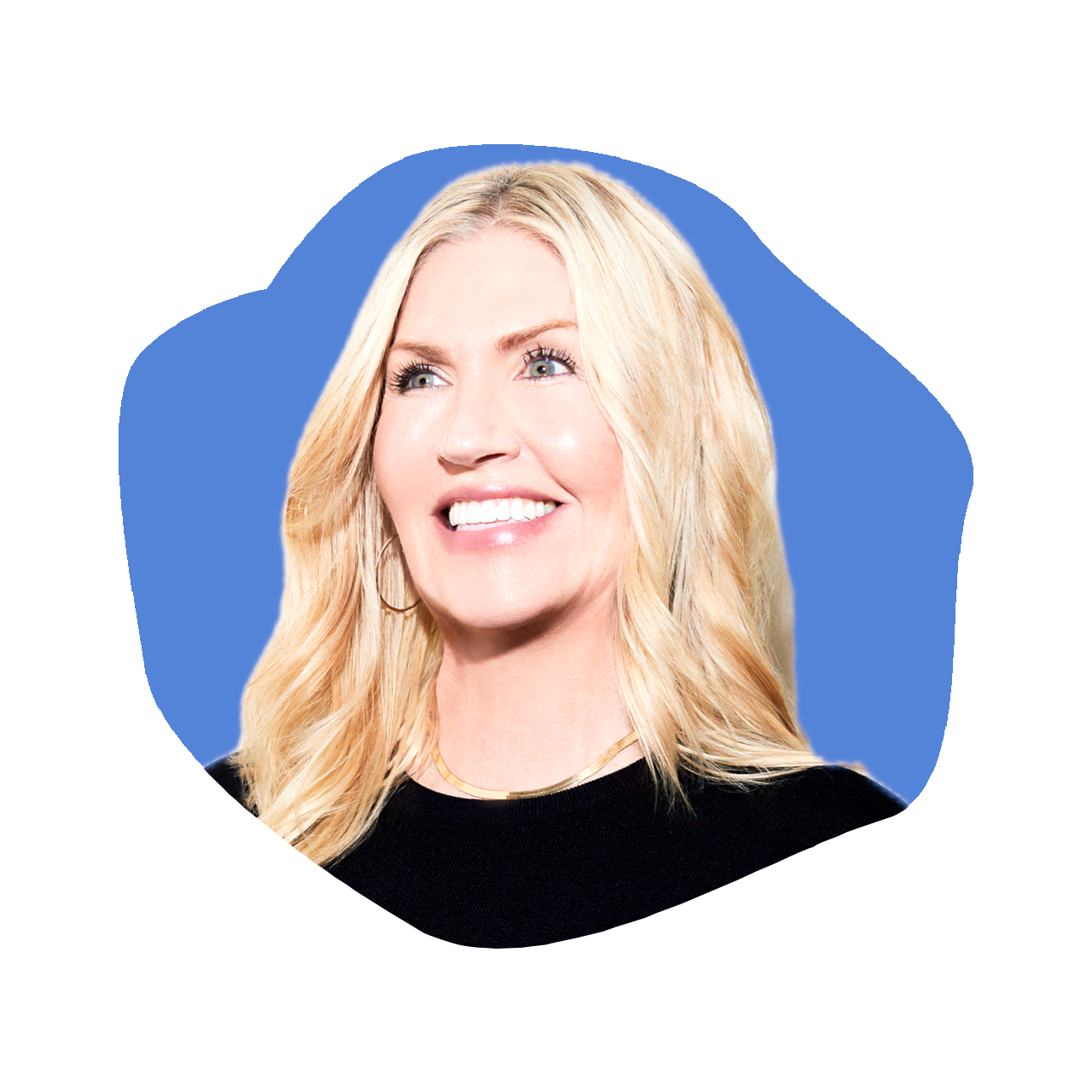Pattie Sellers: Co-Founder and Co-CEO of SellersEaston Media & Co-Founder of Fortune’s Most Powerful Women
Episode 345
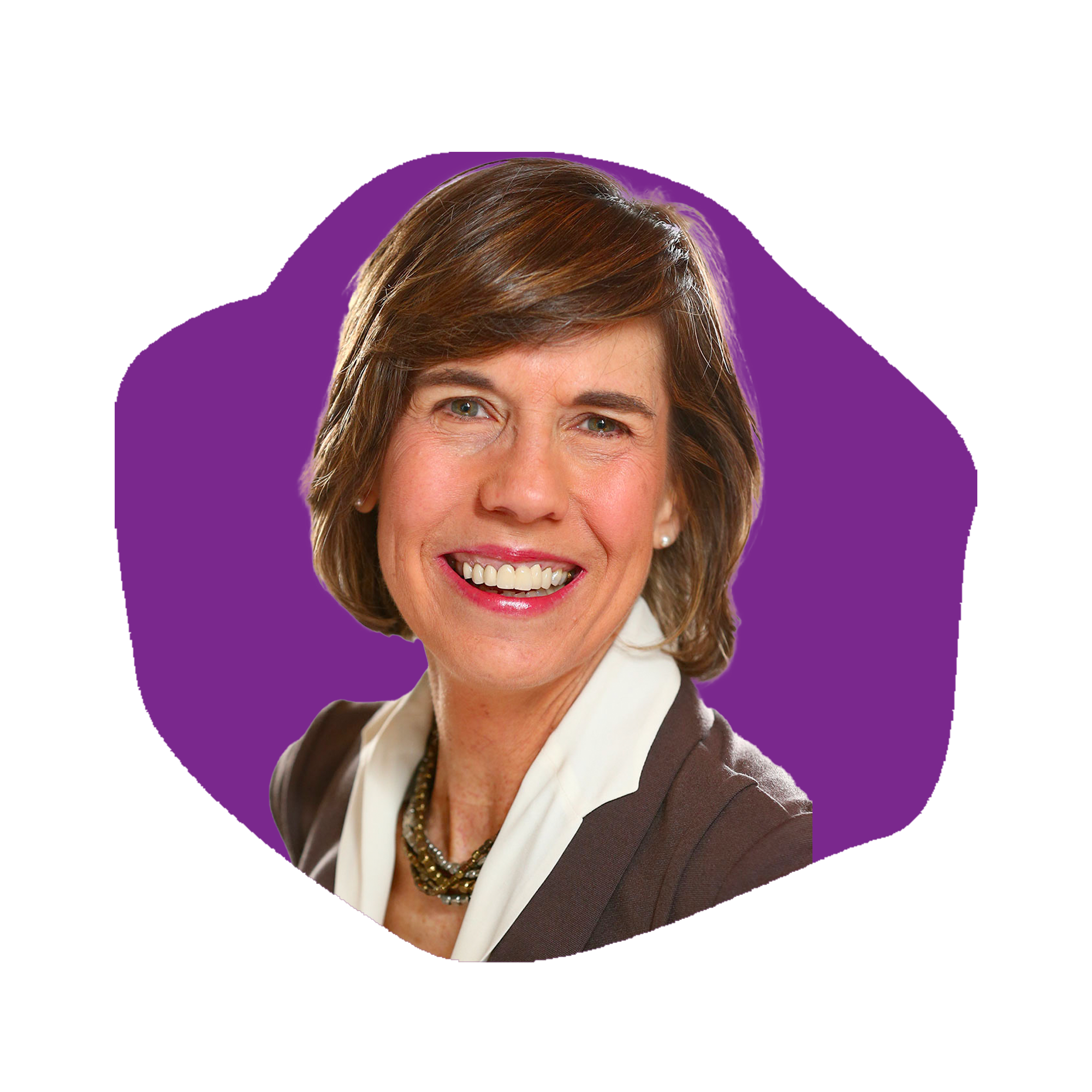
Pattie Sellers is a force! The energy behind Fortune’s Most Powerful Women’s initiative, she is an award-winning writer, producer, and multimedia journalist and is now the Co-CEO of SellersEaston Media and the Chair of the annual Fortune Most Powerful Women Summit. In this conversation, we discuss her journey and lessons learned from meeting and interviewing some of the world's most successful and powerful people, including Warren Buffett, Ted Turner, Melinda Gates, John Mack, Martha Stewart, Rupert Murdoch, and Oprah. Plus, we hear all about SellersEaston Media and JOURNEYs. This is one terrific episode that you will not want to miss! On this episode of #TheKaraGoldinShow.
Resources from
this episode:
Enjoying this episode of #TheKaraGoldinShow? Let Kara know by clicking on the links below and sending her a quick shout-out on social!
Follow Kara on LinkedIn – Instagram – X – Facebook – TikTok – YouTube – Threads
Have a question for Kara about one of our episodes? Reach out to Kara directly at [email protected]
To learn more about Pattie Sellers, SellersEaston Media and JOURNEYs:
https://www.sellerseaston.com/
https://www.journeytolead.org/
https://www.linkedin.com/company/sellerseaston-media/
https://www.linkedin.com/in/pattiesellers/
https://www.instagram.com/pattiesellers/
Transcript
Kara Goldin 0:00
I am unwilling to give up that I will start over from scratch as many times as it takes to get where I want to be I want to be you just want to make sure you will get knocked down but just make sure you don’t get knocked down knocked out. So your only choice should be go focus on what you can control control control. Hi, everyone and welcome to the Kara Goldin show. Join me each week for inspiring conversations with some of the world’s greatest leaders. We’ll talk with founders, entrepreneurs, CEOs, and really some of the most interesting people of our time. Can’t wait to get started. Let’s go Let’s go. Hi, everyone. It’s Kara Goldin from the Kara Goldin show and I am so thrilled to have my next guest here we have Pattie Sellers who is the co founder and CO CEO of sellers Eastern media and she is also the co founder of fortunes most powerful women, in addition to being a former editor from Fortune Magazine, we’ll get into that a little bit more. She’s now hung a shingle and has gone out to start her first company, which is Sellars, Easton. And we’ll talk a lot more about bad she started the company with fellow senior fortune editor Nina Easton, and Pattie spent 32 years at Fortune as a journalist. But as I mentioned, in addition, she co founded the fortune Most Powerful Women program, the largest and most valuable franchise to date for fortune. Over the years, she earned the trust of countless CEOs and other global leaders, including familiar names like Warren Buffett, Melinda Gates, and Oprah Winfrey, just to name a few. And then Pattie decided that it was time for her to go out on her own and start this incredible company, which I can’t wait to hear more about. So without further ado, welcome, Patti.
Pattie Sellers 2:04
Thank you, Kara. It’s great to be here. I’ve been a fan of the show for years.
Kara Goldin 2:11
Very, very excited to have you. So I would love to start way back at the beginning. You grew up in Allentown, Pennsylvania, and you were an only child? Do I have that correct?
Pattie Sellers 2:23
I think I still am and only forever and only child? Did you
Kara Goldin 2:29
always think that you would be a journalist? Did you ever think that you would start your own company? i What, what did you think when you were a little girl that you were going to be doing?
Pattie Sellers 2:40
So when I was a little girl? I asked a lot of questions. Like a lot of little girls ask a lot of questions in general. But I asked a crazy amount of questions. And my parents thought I should be a lawyer. They thought I’d be great in the courtroom. And I love to read and love to write, I really started thinking, I guess, you know, probably at the beginning of high school. When I joined the school newspaper, I thought about being a journalist. And I went to the University of Virginia, and I ended up being a color that you know, a senior editor of the newspaper there, the daily newspaper, and then my last year, a friend of mine, a college friend of mine, and I started a magazine called Creator, which was about creative and innovative people in and around Charlottesville, Virginia. And it was this was this was the early 80s. When the unemployment rate, it’s hard to believe this now, but the unemployment rate was in the mid teens. There were no jobs. And I dreamed of going to New York and I wanted to work for like New York magazine or something like that, like a sort of arts and culture and had no interest in business, couldn’t find a job. And I was dating a guy who knew a woman who was starting a weekly business newspaper in Northern Virginia. And I met her and she hired me as an intern. And I found I really liked business writing for two reasons. I thought, well, these people that I’m interviewing are actually smart. And these people can actually get things done. And that intrigued me.
Kara Goldin 4:34
So interesting. So you ended up taking a role there you became an editor, managing editor. Well,
Pattie Sellers 4:41
no, no, I, I did a gig for two years at this startup business newspaper and found I like business writing. So when it came to, you know, two years out, I was like, Oh, maybe I could actually get a job with a magazine in New York now and I applied to the big Ray Forbes and fortune and business weak. And they’re very different magazines. I mean, I ended up spending 30, over 30 years writing for fortune. And now I see how different they are. But at the time, they were sort of all the same. And fortune offered me my first job. And I took it. And it was the best place for me because Forbes is Forbes is like an investor’s magazine and Businessweek is in news weekly. And I, you know, I was inclined to write, I wanted to write about people, I wanted to write about people who were kind of changing the world. And I definitely ended up doing that. But some of the names you mentioned, like Oprah Winfrey, and Warren Buffett, and Bill Gates and Melinda Gates, and Rupert Murdoch, and Ted Turner, and all those, like, sort of Master of the Universe, kind of people,
Kara Goldin 6:00
what was your first kind of, oh, my gosh, I’m writing a story about them. Do you remember that person who was that story,
Pattie Sellers 6:07
the first story I traveled for, which I remember extremely well, because it was a big deal. And it was like a big story. In the magazine, I flew to St. Louis and interviewed Auguste Bush, the third, you know, he’s like the great grandson of the founder of Anheuser Busch, and he was a terror, this man was just a really, like, unbelievably tough boss and tried not to let them intimidate me. And I was an English major in college, I never even took accounting. So I always felt like I could easily be exposed, and, you know, appear, but you know, you what you do in those situations. And this was, this was the 1980s. This was like, you know, women, it was a very different environment. And I just always felt that if I asked enough questions, my true talent, and I’m also kind of gullible, and I, but I just sort of kind of ward that off by working and over researching and asking, asking more questions, maybe than others did.
Kara Goldin 7:18
In those early years of writing. Were you one of the few women on the team?
Pattie Sellers 7:22
Well, in terms of like, as I moved up into the writing ranks, it was pretty much like there were these researchers at Fortune, and that was kind of a gender, a mixed gender kind of pool. It was mostly men who were writers of fortune. And then there was Carol Loomis, who I think you Yeah, and she’s 92 years old now. And I talked to her at least once a month. And she’s a dear dear friend. And she, she turned out to be she spent 60 years of fortune, she turned out to be a sort of Legend of business journalist, journalism. And, you know, she was a role model. So I had a female role model. And it wasn’t, you know, it wasn’t lonely at all, in terms of women. But, you know, there never was, until today, a female top editor fortune, for example, it was very male dominated,
Kara Goldin 8:22
right, especially for business stories, I would imagine you would, you know, more likely to see woman at People magazine, or, you know, obviously InStyle wasn’t around. But you know, more obvious but business, I think there were few and far between, and I just think you were such a trailblazer on so many fronts, whether or not you see that or not. But when I think back on some of the interviews that you did, and some of the pieces that you did, you actually had 20 covers over 20 covers for Fortune, which is 120 or so. Yeah, I mean, that’s just wild. What was one of the best pieces of leadership advice that you received, when you think back on Wow, that was a great interview, that was an excellent piece that I did that you’re most proud of, that you, you know, kind of maybe surprised you from a leadership standpoint that had you really thinking
Pattie Sellers 9:16
there are a couple of things that as I got into, you know, early on, it was it was writing about fortune was all about writing about male leaders, without without facial hair. I mean, it wasn’t white male leaders without facial hair when I started in the 80s. Conservative in suits, white and you know, they had a certain they had a certain look, it was only in the 90s that I started writing about women. It was 1998 when we started most powerful women but in the 90s and 2000. I started more women start Did coming into power. And a couple of them really left me with ideas that stuck in my head. And one of them was Oprah. I went to see her, I went to interview her for like three hours in her office without a bathroom break was unbelievable. And no PR person in the room. Like when you interview Oprah, it’s like, she, she acts like you’re her best girlfriend, then it’s very seductive. But like three hours in there, we ended up holding that story to that till 2002. Because when 911 happened, we, you know, we’re not going to put Oprah on the cover of that next issue. It was the most powerful women issue. But, you know, she, she had this aversion to power to the word power. And when we started most powerful women, a lot of the women who were on the list, Meg Whitman, who was running eBay at the time, you know, the very few fortune 500 Female fortune 500 CEOs, and I just never got that, like, I never understood that. First of all, we trot, we started when we decided to call this list, The Most Powerful Women list. And it really bothered me that these powerful women were not comfortable with the word power. And the day I met Sheryl Sandberg for the first time, which was over coffee in New York, when she was at Google before she even went to Facebook. She said to me, she said, this most powerful women thing that you started, it’s interesting, but she said, we share calendars at Google, and I can’t even put I’m coming to your conference for the first time. I can’t even put most powerful women on my calendar because it’ll like people will believe like, what? And I was like, I kind of rolled my eyes at it. And I’m like, Cheryl, I didn’t even you know, I’m just meeting her for the first time. But I said, you know, power is what you make it. It is what you make it and eventually, Cheryl came around to that. Oprah came around to that Oprah Oprah ended up like, you know, embracing power in a big way. And I subsequently talked to her about it. But that is the idea that left me with more of a sort of a leadership challenge, so to speak. And I ended up building speeches around that and a whole kind of a whole career around that. The other thing that I this is a this is a sort of a phrase that I started talking about in my speeches that Sheryl Sandberg subsequently adopted, which is this idea of your career as jungle gym. And the idea that you shouldn’t, especially in today’s unpredictable, fast changing world, think about your career as a ladder. Because who knows what the, you know, what the what the good thing is going to be next year, much less tomorrow. And you know, we all thought crypto was something right. So think about don’t climb the ladder. Think about your career as a jungle gym. Keep your peripheral vision sharp. Always be looking over here for opportunities over here and here for opportunities and maybe look down maybe look lateral maybe look down. And Cheryl ended up writing about this and nicely crediting me and lean in. There’s a whole chapter about about the jungles. Yeah,
Kara Goldin 13:40
exactly. So given your point on the jungle gym, obviously, the pandemic, for the last couple of years, I think we’ve really been able to see true leadership along the way through this time. Just because you’re a CEO, it doesn’t mean that you’re actually leading in the way that maybe others are, what do you see as one of the key things leaders needed to show during that incredibly challenging time? Who did you see was doing it right?
Pattie Sellers 14:11
Well, first of all, flexibility, which may be a surprising answer, but flexibility, adaptability are, I believe, besides integrity, and trustworthiness, and all that the most important leadership qualities today and they’re going to continue to be I mean, if you’re not flexible, if you’re not adaptable, you’re dead. Authenticity obviously became evermore important. You know, and sellers Easton. Now I’ll do my plug at sellers east and we help companies and their executives build leadership platforms and profiles and Nina Easton and I, my co CEO spent decades writing about leaders, profiling leaders, interviewing leaders on stage and not just CEOs. But you know, world leaders in in Nina’s case, she was the Washington editor for fortune. And often people do not, you can be like the smartest executive in the world, but you’re living your life. So you can’t see your life from the outside, you can’t see the forest for the trees. And you can have your mission, vision and values. But it’s like, unless you have someone who can sort of like, step back and look at all that for you from afar, and help you sort of shape your story. So that’s what that’s what we do, and authenticity, the authentic nature of that person is at the core. 15 years ago, when I did this cover story about Melinda Gates, it was the first was the first solo profile she ever agreed to do. She was so nervous. And I was I felt like I was holding something precious in my hands. And I and I started that interview asking her about her childhood. I said, I never do this. But but I’m doing this profile about you. And we’re going to start like, we’re going to start with your childhood. And we’re just going to go forward from there. And I never stopped doing it that way after that story, because I found that if you and I today and sellers Eastham if I’m if we have a new client, first thing I asked them is tell me about like, what were you like, as a child? What were your parents? Like? What did they do? Did you have brothers and sisters? What did you want to be when you were 10 years old when you were 16 years old? Because there’s no artifice to those answers. Unless you had a terrible childhood. And you don’t want to talk right, right or something. But it really makes you understand who the person is. And I just find that, you know, that if I were doing a story about you, Kara, rather than the other way around right now, I mean, I would be asking you about your childhood first. And you You did it with me. You know, you brought up Allentown Yeah,
Kara Goldin 17:23
definitely. What is it hard to tease these stories out? I mean, you start with that it’s it’s almost like an icebreaker, I guess, in some ways, but if I understand the mission behind what you’re doing at sellers Eastern to I mean, you’re really helping craft the story that the person wants to tell, right?
Pattie Sellers 17:42
Yeah, I, I’ve sold out. Yes, I have sold out. I’m no longer a journalist. I’m a recovering journalist. Now I help people tell the story they want to tell right, which is, which is great.
Kara Goldin 17:55
But it sounds great to say that you want to share a story, but is a tough to get people to really understand you know what that story is?
Pattie Sellers 18:06
Well, I mean, that’s my job. I mean, my job is to ask the right questions, and then help them understand their story. And to help them discover things about themselves that they didn’t know. And that is a successful interview or a successful project when someone says to me, Wow, I never really thought about that that way. And that’s like, the biggest compliment in the world. It’s not hard just because I mean, listen, I I’ve been doing it for over 30 years, I I’m a good inner, I’m a really good inner our east and my co CEO, and so is even Shapiro who we just hired from Time magazine, he was the number two editor at Time. He’s a rock star. He was he was senior editor at The Wall Street Journal before that. But you know, we have decades of experience and interviewing, kind of getting the story. That’s just step one. And then kind of seeing the forest for the trees, as I like to say, what is the what is the through line here? What’s the narrative of this company or of this person, this amazing person, and then finding a way to tell their story, whether it’s, you know, whether it’s a LinkedIn article, a blog post, an op ed a video, a film, we’re doing like we’re doing full fledged documentaries. Now. We just did one of my probably my favorite project that I did this year. One of my favorites was Eli Brode was this amazing billionaire calamp for pest and business man who had built two Fortune 500 companies, KB home, the home builder, Kauffman and bro that used to be called, and Sun America, which he sold to AIG for like $17 billion. And he became a very, very rich man and ended up being an amazing philanthropist who has the Brode Museum in LA, but he died last year. And his widow and their foundation commissioned us to do an hour long documentary, I interviewed Mike Bloomberg and Jeff Koons, the artist and Frank Gehry, the architect and all sorts of amazing Nancy Pelosi. And it’s an amazing film. And now, you know, I kind of prefer to do stories about people when they’re alive. Yeah, but this is a wonderful legacy project.
Kara Goldin 20:59
I love it. So people who start companies, founders and entrepreneurs, the consistent thread, no matter what industry, they’re in, they hear a ton of noes. And it’s probably the most challenging thing, especially if you’ve been working inside of a large company. I hear this over and over again, from people that it can be deflating at times. You’re like, what am I doing? I mean, what am I doing wrong? You start to question, is this gonna be like this forever? Whatever it is. I’m curious, what was the most difficult part of kind of getting this going and trying to figure out exactly how to deal with that.
Pattie Sellers 21:38
So we didn’t raise any money for this company. I mean, the wonderful thing about this company, unlike hint, is that you don’t have to manufacture anything. Here, and my fingers on the on the on the keyboard, you know, we work with filmmakers. We’re we just finished a film with two time award winning academy award winning documentary filmmaker Barbara Kopple. So we work with great people, or we do it do it ourselves. I mean, honestly, Kara. Business is really good. And we have lots of clients. And the I’m just finishing a book project, a private book project for Peter Lynch, the I don’t think he’d mind my saying, Peter Lynch, the famous investor, who everybody knew in the in the 80s, and 90s, he built for that Fidelity’s Magellan Fund into the world’s biggest stock mutual fund from like, you know, from the ground up. So I’m doing a private, he’s such a wonderful man. I’m doing a private book for him now. And I don’t have a next book. So I’m kind of looking for my next book, if anybody is interested. But we do have a lot of business. And you know, it’s been challenging. I never, I never managed before. I never managed a team. We have a fantastic team. Luckily, I have a really good co CEO, and Nina Easton, who is kind of a better manager than I am. So I’m really good at bringing in the business. I want to mention two things that really address your question getting no we just completed this major documentary. It’s called gumbo coalition, and we’re in the process of trying to sell it now. We’re in some film festivals, feedback has been amazing. It’s with two directed by two time Academy Award winning director Barbara Kopple. It’s, it’s a it’s a really good film. And we had to raise a lot of money to make that film over five years. It was dialing for dollars, and it was really frustrating. And we almost didn’t, didn’t get you know, we almost weren’t able to, to finish the film. Procter and Gamble came in. God loves Mark Pritchard, the Chief Brand Officer at Procter and Gamble, such a great guy. And he helped us out and enabled us to finish the film. I have found and I know how relentless you are. And in dealing with knows, I actually I actually am kind of turned on by it. I’m rarely discouraged. I just get more determined. And I never really knew that about myself because I never really had to do it. Early in 2022, we launched a nonprofit, a women’s leadership, nonprofit, this journey I was gonna ask you about. Yeah, but we’ve had to raise money for that too. And it’s not easy. This is a non part prophet, and it is not easy to raise money. That’s what I’ve learned.
Kara Goldin 25:05
Talk to me a little bit about journeys. So,
Pattie Sellers 25:09
Nina and I had been, you know, we have been the sort of lead architects of building most powerful women, the summits around the world. And I had co founded Most Powerful Women and we build it from a list to an issue in the magnet, you know, an issue of the magazine and a conference, and then global conferences, and a community, a global community. It’s, you know, my baby, and I continued to be involved in it until like two years ago. And now we’re completely gone from fortunate Nina Easton and I are completely gone from Fortune. And we don’t want to give up the job of doing all we can to empower women, and to equip women to to move into higher leadership positions. The numbers are terrible, there has been progress, the numbers are still terrible, less than 10% of fortune 500 CEOs are women. The you know, Kara, the, the the amount of VC money that goes to women founders, it’s pathetic. So we started thinking about what could we do that’s different from most powerful women. And we don’t want to hurt that in any way. And we came up with this idea for journey, which is a very intimate, and frankly small but powerful women leadership community where we are connecting each year, a class of 25 fellows, a diverse mix of women founders and corporate executives, who are very high achievers, very accomplished, but need doors, open pathways, open advice and guidance to reach top top leadership positions. And these women have to be working on some pressing problem challenge in the world, whether it’s climate change, or health care, or education, or the digital divide or whatever. And we connect them with a small group of rock star renowned women leaders, who we call champions and they include Mary Barra, Roz Brewer, the CEO of Walgreens Corey Berry, the CEO of BestBuy, Ginni Rometty, the former CEO of IBM Mellody Hobson, Tory Burch, an amazing group of women, and it’s very much intimate bond building, and, you know, small private events, virtual and live. And it’s pretty fantastic. We just put out a call for nominations mid January is the or late January is the deadline for applications. So anyone just go to journey to lead.org to see what it’s about. And we’ll be selecting our new class of 25 fellows for 2023.
Kara Goldin 28:18
And these are general these are kind of are they pre company are these sort of idea are
Pattie Sellers 28:25
two examples of women. We actually have a preponderance this year of women in healthcare, which we decided to embrace because transforming healthcare is a very important thing to do in the world. We have one of our fellows is April Cole, who is the founder and CEO of spring health, which is a company that applies AI to provide mental health services. And April is the youngest female CEO leading a unicorn. So that’s one and then we have a woman named Adrian Brown and Eli Lilly, who heads the $10 billion US diabetes business for them. And she is a black woman who has diabetes in her family and is very, you know, very much a champion of making diabetes treat and giving equal access, especially for a disease like diabetes that really hits underrepresented populations more heart a lot harder than then the rest of us.
Kara Goldin 29:38
I love it. And Lisa Dyson, actually, we were on a panel together that you headed up.
Pattie Sellers 29:43
Isn’t she a genius? She’s
Kara Goldin 29:45
amazing. We ended up getting together back here in the Bay Area and has you know, a really interesting company for sure and really enjoyed meeting her.
Pattie Sellers 29:56
So Lisa Dyson has, is the founder and CEO You have a company called Air protein, which is making protein like meat products out of out of air. Yeah, NASA technology.
Kara Goldin 30:12
Very, very interesting stuff. So one of the people that you’ve formed a unique friendship with over the years is Warren Buffett, I cannot leave this interview without asking you, what is the best advice that comes to mind that Warren shared with you?
Pattie Sellers 30:33
Hmm, wow. I’m not sure I’m going to be able to answer that question. Because so I have come to know Warren Buffett and his family personally. And the wonderful thing about them is that they, I mean, I think everybody kind of knows this, but they are truly the most down to earth people. And I once I once asked Warren, what is success? And he answered in a way that I wasn’t expecting. And he said, success is having the people who you love, love
Kara Goldin 31:12
you. It’s powerful. I love that. That’s really, really great and great note to end on. So thank you, Patty. It was such a pleasure to talk with you and hearing all of your journey and the great insights and we’ll have all of the info in the show notes around sellers Easton. Everything around journey as well and of course Patty sellers and how to connect with you. So thank you for your time today.
Pattie Sellers 31:38
Can I Can I just before you go. The deadline to apply to be a journey fellow is late January.
Kara Goldin 31:46
Perfect. Well, thank you, Patti. Thanks again for listening to the Kara Goldin show. Please give us a review and feel free to share this podcast with others who would benefit and of course feel free to subscribe so you don’t miss a single episode. Just a reminder that I can be found on all platforms at Kara Goldin and if you want to hear more about my journey, I hope you will have a listen or pick up a copy of my book on daunted which I share my journey including founding and building hint we are here every Monday, Wednesday and Friday. Thanks everyone for listening. Have a great rest of the week and good bye for now. Before we sign off, I want to talk to you about fear. People like to talk about fearless leaders. But achieving big goals isn’t about fearlessness. Successful leaders recognize their fears and decide to deal with them head on in order to move forward. This is where my new book undaunted comes in. This book is designed for anyone who wants to succeed in the face of fear, overcome doubts and live a little undaunted. Order your copy today at undaunted, the book.com and learn how to look your doubts and doubters in the eye and achieve your dreams. For a limited time. You’ll also receive a free case of hint water. Do you have a question for me or want to nominate an innovator to spotlight send me a tweet at Kara Goldin and let me know. And if you like what you heard, please leave me a review on Apple podcasts. You can also follow along with me on Facebook, Instagram, Twitter and LinkedIn at Kara Goldin. Thanks for listening





